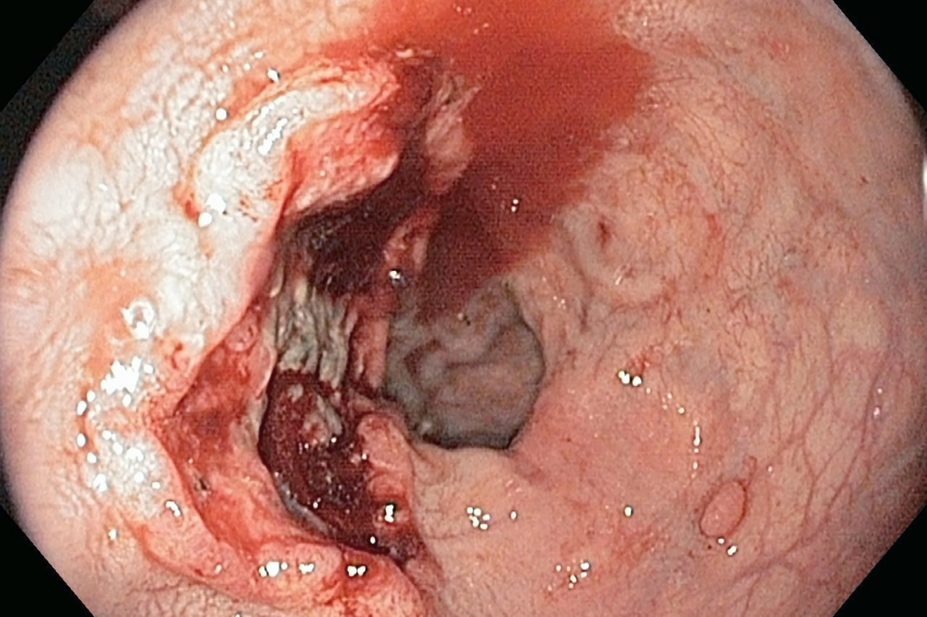
Gastrolab / Science Photo Library
Lower gastrointestinal (GI) bleeding in patients with atrial fibrillation (AF) who are being treated with oral anticoagulants is associated with a higher risk of being diagnosed with colorectal cancer, a study published in the European Heart Journal suggests (7 February 2020)[1]
.
Researchers studied data on 125,418 people in Denmark who were initiating anticoagulant therapy for AF. They were followed up for a maximum of three years’ treatment, during which time there were 2,576 cases of lower-GI bleeding. Among these cases, 140 were diagnosed with colorectal cancer.
Across age groups from 65 years and under to over 85 years, the risk of incident colorectal cancer following lower-GI bleeding ranged from 3.7% (95% confidence interval [CI] 2.2–6.2) to 8.1% (95% CI 6.1–10.6). Across all age groups, lower-GI bleeding was associated with a significantly higher risk of colorectal cancer compared with patients who did not bleed. The risk ratios ranged from 10.6 (95% CI 6.8–16.6) in those aged 71–75 years, to 24.2 (95% CI 14.5–40.4) in those aged 65 years old and younger.
Lower-GI bleeding is strongly associated with malignant GI lesions and the researchers suggested that anticoagulant treatment may unmask yet undiagnosed lesions.
The authors wrote: “Our data indicate that lower-GI bleeding in these patients should not be dismissed as a mere consequence of anticoagulation treatment”.
“Timely examination could potentially provide early detection of malignant colorectal lesions.”
References
[1] Rasmussen P, Dalgaard F, Gislason G et al. Eur Heart J 2020;ehz964. doi: 10.1093/eurheartj/ehz964
You may also be interested in

New class of anticoagulant found to ‘overwhelmingly’ reduce bleeding events in patients with atrial fibrillation

Nearly 92% of atrial fibrillation patients in England anticoagulated, says NHS adviser
